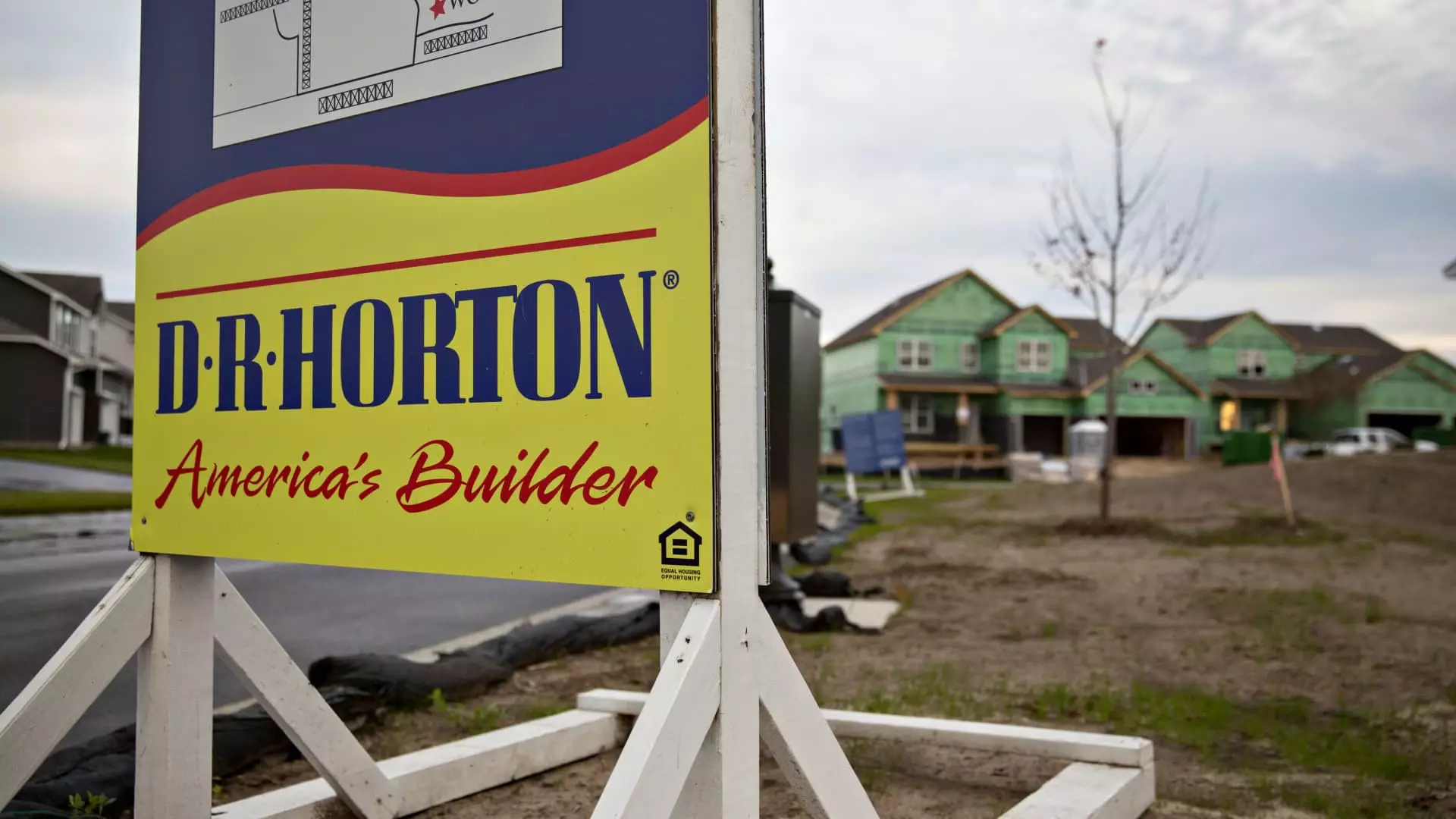Recent reports from D.R. Horton, one of the largest homebuilders in the United States, highlight growing concerns regarding the real estate market and the wider economy. The Arlington, Texas-based company faced a disappointing quarterly earnings report, prompting an 11% drop in its stock price. CEO David Auld pointed out a worrying trend: potential homebuyers are hesitating due to the volatility of interest rates. With a current fixed mortgage rate at 7%, down from an alarming 8% last October, the message is clear—uncertainty remains the predominant emotion surrounding potential investments in real estate.
Interest Rates and Economic Signals
The mortgage landscape has been shaped by the yield on the 10-year Treasury note, which has recently experienced fluctuations that ripple through the housing market. As yields rise, borrowing costs tend to follow suit, creating a less favorable environment for home sales. Auld’s comments emphasize a critical viewpoint: many prospective buyers are holding out, anticipating that rates will be more favorable in the coming years. This sentiment could lead to a significant backlog in home purchases if interest rates do not align with consumer expectations.
Compounding these challenges is the Federal Reserve’s recent pivot to cutting rates. The Fed’s half-percentage-point reduction has not translated into lower consumer borrowing rates, suggesting a disconnect between Federal policy and market realities. Economists are left to grapple with the implications of strong economic indicators that raise questions about the sustainability of future rate cuts.
D.R. Horton’s Financial Forecast and Broader Impact
D.R. Horton’s adjusted revenue projections for the fiscal year ending September 2025 fell short of Wall Street’s expectations, which could have far-reaching implications for the homebuilding industry. The anticipated revenue range of $36 billion to $37.5 billion contrasts sharply with the $38.91 billion consensus forecast from analysts. Such discrepancies can erode investor confidence in the sector and lead to further declines in stock values. The company reported earnings per share of $3.92 against an expected $4.17, highlighting a pattern of underperformance that could deter potential investors.
The ramifications extend beyond just D.R. Horton. The negative sentiment echoed across companion homebuilders like Toll Brothers and KB Home, whose shares experienced a downward trend following the report. This fragmented market environment suggests a potential ripple effect that influences consumer confidence, ultimately affecting broader economic health.
As the housing market grapples with declining consumer confidence and rising borrowing costs, the future remains uncertain for both homebuyers and builders. Potential buyers are poised between waiting for improved rates and the fear of missing out on existing opportunities. Stakeholders and market watchers must keep a close eye on economic indicators and Federal Reserve actions to navigate these turbulent waters. Only with stable interest rates will a path forward for the housing market and the overall economy become clearer. The coming months will be pivotal, determining whether D.R. Horton and its peers can adapt amidst these shifting dynamics.

